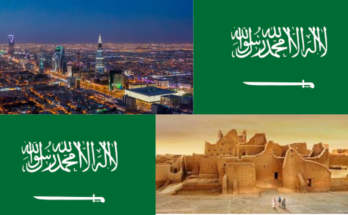PTI Chairman Barrister Gauhar Arrested Outside Parliament: A Critical Development in Pakistan’s Political Turmoil.
In a dramatic turn of events, Barrister Gauhar, the newly-appointed Chairman of Pakistan Tehreek-e-Insaf (PTI), was arrested outside the Parliament in Islamabad today. This development has escalated the ongoing political tensions in Pakistan and sent shockwaves throughout the country’s political landscape. Barrister Gauhar’s arrest comes amidst heightened unrest following months of political instability, legal challenges, and confrontations between the PTI and the current coalition government.
The Arrest Incident: What Happened?
According to eye-witness accounts, Barrister Gauhar, who had been addressing a press conference outside the Parliament, was suddenly detained by a large contingent of law enforcement officers. The atmosphere outside the Parliament was tense as Gauhar and several key PTI leaders gathered to voice their opposition to recent government policies and decisions regarding electoral reforms and accountability laws.
Witnesses reported that Gauhar was forcefully taken into custody without prior warning. The PTI leadership had been gearing up for a potential legal battle over the government’s proposed constitutional amendments, which PTI claims are aimed at undermining democratic norms and ensuring a favorable outcome for the ruling coalition in the upcoming elections.
The Context: A Nation in Political Crisis
Barrister Gauhar’s arrest marks another significant moment in the ongoing political crisis in Pakistan. PTI, under the leadership of Gauhar, has been vocal in criticizing the government for what it calls authoritarian tactics, suppression of dissent, and widespread corruption. Since taking the helm of PTI following the resignation of former party chief Imran Khan, Gauhar had been positioning himself as a strong advocate for legal reforms, transparency, and the restoration of rule of law in the country.
PTI has been on the back foot ever since the disqualification of several of its members in Parliament, as well as the dissolution of provincial assemblies in an attempt to force early elections. Barrister Gauhar had emerged as a unifying figure for the party’s rank and file, rejuvenating the political base by promising to continue PTI’s fight for democratic freedoms and fair elections.
However, in recent months, the situation has taken a darker turn. Crackdowns on PTI activists, legal cases against its leadership, and growing frustration over economic mismanagement by the coalition government have intensified public protests, which the government has met with forceful resistance.
Charges Against Barrister Gauhar
Following the arrest, government officials have stated that Barrister Gauhar has been taken into custody over charges related to incitement of violence, violation of the law, and obstruction of government proceedings. Specific charges have yet to be made public, but there are indications that the arrest was pre-planned in light of Gauhar’s recent legal filings against the government in the Supreme Court.
PTI leaders claim that the arrest is politically motivated and part of a broader strategy to silence opposition voices ahead of the national elections. They assert that the government is using legal cases to stifle dissent and prevent PTI from participating effectively in the democratic process.
Supporters of PTI have also noted that Gauhar’s recent legal actions, including challenging controversial electoral reforms, had made him a target of political reprisal. His arrest is seen by many as part of the ongoing political maneuvering to weaken PTI’s position in the run-up to the election.
National Reactions: Protests and Uproar
The news of Gauhar’s arrest has sparked an outpouring of protests across major cities in Pakistan. PTI supporters and civil society members have taken to the streets, chanting slogans against the government and calling for his immediate release. PTI leaders are now planning a series of mass protests and rallies to demand justice and raise awareness of what they perceive as the government’s undemocratic tactics.
Meanwhile, international human rights organizations have expressed concern over the increasing crackdown on political opposition in Pakistan. Amnesty International has issued a statement calling for the immediate release of Barrister Gauhar and urged the Pakistani government to uphold democratic freedoms and human rights.
Legal and Political Consequences
Legal experts suggest that Barrister Gauhar’s arrest may trigger a constitutional crisis, given his position as the leader of one of Pakistan’s major political parties. His legal team is preparing to challenge the arrest in court, arguing that it is an illegal act aimed at disrupting the democratic process.
Moreover, this development is likely to further polarize an already divided political landscape. The ruling coalition, facing economic hardships and public discontent, has been accused of using authoritarian measures to maintain its hold on power. The arrest of a prominent opposition leader like Gauhar could embolden PTI supporters and exacerbate political instability in the country.
What’s Next for PTI and Pakistan?
The arrest of Barrister Gauhar is expected to have far-reaching political implications. With PTI leadership behind bars, the party’s future strategy remains uncertain, though it is likely that this move will galvanize supporters and strengthen their resolve to challenge the government.
On the government side, the arrest may have been seen as a necessary step to contain the growing influence of PTI, but it also risks further isolating the ruling coalition and deepening the sense of political dysfunction. As Pakistan heads toward crucial elections, the tension between the opposition and the government is bound to escalate further.
International observers are now closely watching how the situation unfolds. The stability of Pakistan is critical, not only for its own citizens but also for the broader South Asian region, where political unrest can have ripple effects on neighboring countries and international relations.
In conclusion, the arrest of Barrister Gauhar outside Parliament represents a significant escalation in Pakistan’s political crisis. As the country grapples with growing political division, economic hardship, and the struggle for democratic rights, the road ahead looks increasingly uncertain.



